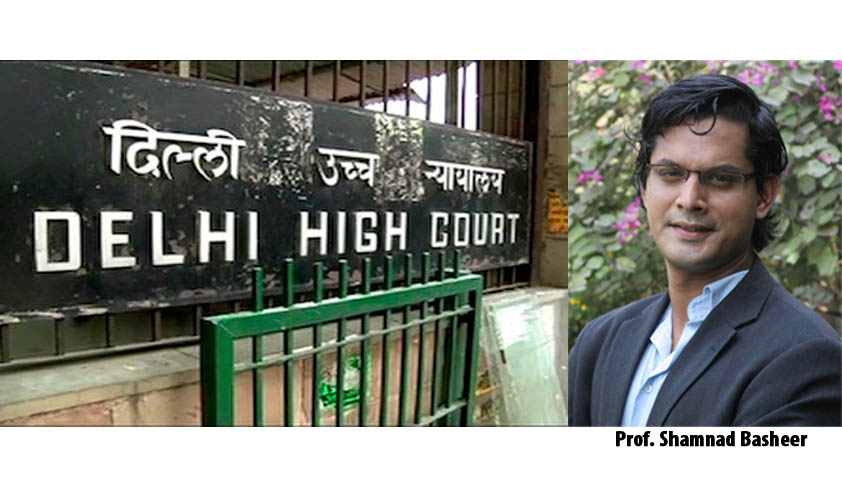Delhi HC issues notice on Prof. Shamnad Basheer’s PIL on patent working norms
Apoorva Mandhani
1 Sept 2015 8:25 PM IST

Next Story
1 Sept 2015 8:25 PM IST
A Delhi High Court Bench comprising Chief Justice G. Rohini and Justice Jayant Nath has reportedly sought a reply from the Government on Prof. Shamnad Basheer’s PIL regarding patent working norms.The Government had been ordered to file its reply within 4 weeks. The matter is not posted to November 17. Prof. Basheer was represented by his counsels, Abhimanyu Bhandari and Sai Vinod.Prof....
